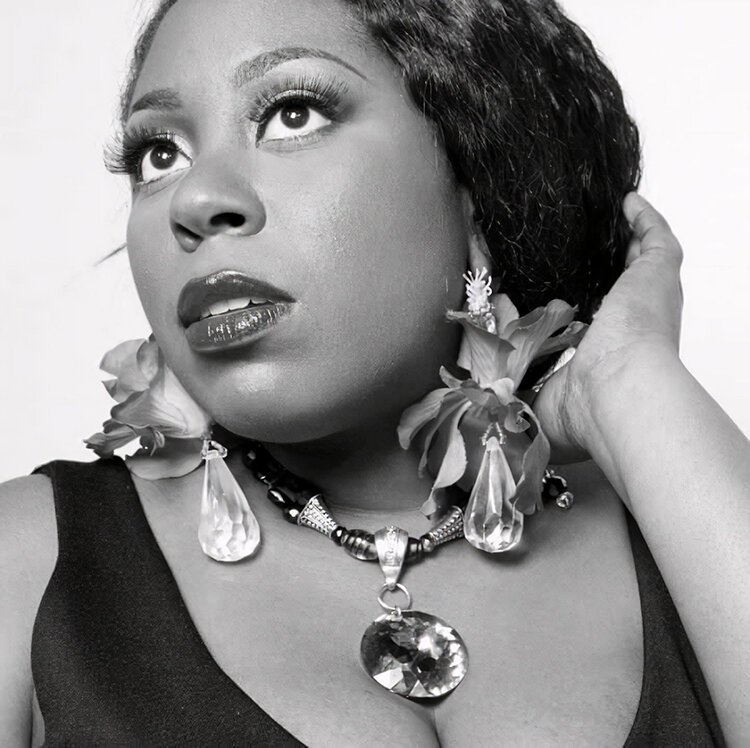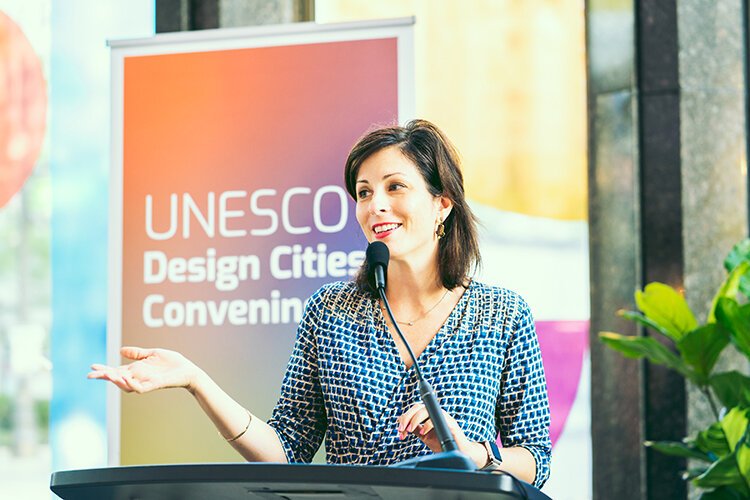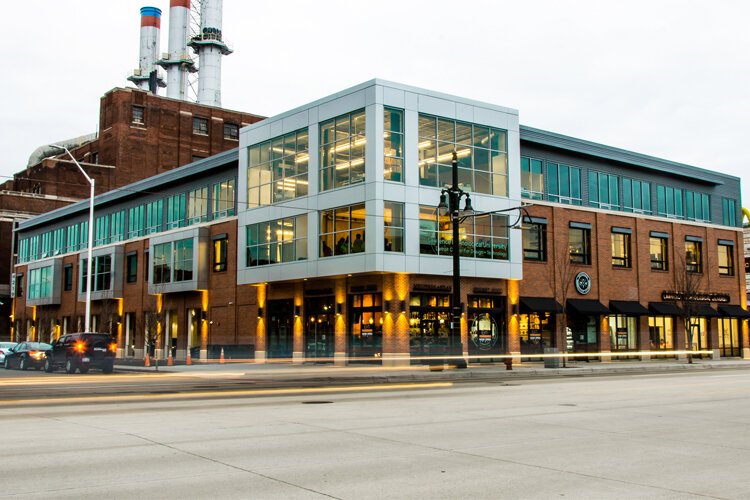Olga Stella of Design Core Detroit: Innovative, inclusive design can help city come back stronger
Amid an economic crisis brought on by the pandemic, Design Core Detroit’s Month of Design 2020 is focusing on inclusive design solutions that leverage Detroit’s UNESCO City of Design designation to promote equitable economic growth for the region.
In the 20 years, Olga Stella has worked in economic development in Detroit, she’s watched the city endure more than its fair share of struggles.
“Whether it was the automotive crisis in 2009, the foreclosure crisis in 2008, the city’s financial issues and bankruptcy, there have been a lot of shocks to the system — but there’s a resiliency in Detroit as well,” says Stella, who has worked as the executive director of Design Core Detroit, a department within the College for Creative Studies that serves design-driven industries in the city, since 2016.
Earlier this year, that resiliency was put to the test when Detroit’s economy suffered yet another harsh blow — this time, as a result of COVID-19. According to a recent analysis from the University of Michigan as part of the City of Detroit University Economic Analysis Partnership, the city’s unemployment rate is expected to rise to 24% this year in the wake of the pandemic, with annual improvements anticipated to slightly exceed Michigan’s statewide recovery until 2024.
To navigate those challenges — and future ones — Stella says innovative, inclusive design can help the city rebuild and come back stronger. “If we think of design as problem-solving and not as aesthetics, […] what we’re looking for are systems and services and places and things that work for people regardless of what’s happening,” she says.
To bring those ideas to life as Stella and her team prepare for the 10th annual Detroit Month of Design this September, they’re focusing on programming, events, and design solutions that prioritize inclusivity and adaptability while leveraging Detroit’s UNESCO City of Design designation to promote equitable economic growth for the region.
[Related: Design in the City partners with Gucci to highlight Detroit designers on a global stage]
Awarded in 2015, Detroit is the first and only American city to receive a City of Design designation as part of the UNESCO Creative Cities Network — an honor that comes with a commitment to champion design in a way that supports the UN Sustainable Development Goals. (After the U.S. withdrew from UNESCO in 2017 citing “anti-Israel bias,” Detroit is the only city to receive the distinction.)
“After we got the [UNESCO] designation, we spent about a year and a half putting together a plan that was released in April 2018 called the Detroit City of Design Action Plan,” Stella says. “What it laid out was that […] what makes Detroit special is this inclusive practice of design — and we need to double down on that practice.”
According to an analysis from that plan (PDF), Detroit’s design ecosystem represents over 20% of the region’s economy despite accounting for only 1% of all industries. The analysis also found that Michigan has the highest concentration of commercial and industrial designers, industrial engineers, and mechanical engineers in the U.S. — something Design Core Detroit is working to leverage.
Over the last two years, Design Core Detroit has partnered with more than 60 organizations that have pledged to support at least one project to advance inclusive design in the city — creating spaces, products, services, and systems that work for everyone. And in the wake of COVID-19, those kinds of projects could be more important than ever.
“I think the pandemic has laid bare many of the inequities in our society — whether they’re racial disparities and access to basic services, health disparities, or many of the economic and social injustices that people in our community are facing,” Stella says. “It’s also, I think, laid bare the fragility of small businesses, both in Detroit and everywhere.”
To strengthen those small businesses in a time of upheaval, Design Core Detroit is focusing on supporting its Detroit Design Network members. “We offer a lot of services to our members to help them with their growth challenges, help promote them, and connect them to business opportunities,” Stella says. Relaunched two years ago, the network includes over 110 small design businesses, freelancers, and even some of the region’s key design firms at its premier level.
In addition to supporting businesses, the organization is also focused on leveraging the diversity of Detroit to encourage equitable growth for the city’s design community through its annual Commerce Design: Detroit awards.
“You see a thread amongst the winners of those awards that really does signal that everyone is welcome through design,” Stella says. “And to tell that story and show people that, is one of the things we’ve been integrating into some of our public programs.”
Part of that integration involves education focused on inclusive design in the form of a podcast and a new training initiative. “We’re working with partners to develop a training program around inclusive design — not to teach people how to be designers, but to help designers and non-designers understand what it looks like to make decisions and develop products and projects and services and places in a collaborative, inclusive way,” Stella says.
That commitment to diversity extends beyond the arts and into the community at large through events like the annual Month of Design, a monthlong celebration hosted by Design Core Detroit every September to showcase a wide range of designers, concepts, and ideas in the city.

This year, in the wake of the COVID-19 pandemic and widespread anti-racism protests, the festival’s programming is centered on design solutions for the many challenges Detroit — and communities across the globe — have faced since the beginning of 2020.
While the festival will look different this year than it has in previous years due to COVID-19, it will feature more than 65 in-person and virtual experiences while highlighting the works of over 175 diverse designers-as-problem-solvers. This year’s lineup includes Design for Reability, exploring design ideas to increase mobility for the disabled; a talk about inspiration from LGBTQ designer Bryan Thompson; “We Exist,” an exhibition featuring wearable Afrofuturism art; “Design Resilience,” a panel discussion about rethinking design in the wake of COVID-19 hosted by Lawrence Technological University’s CoAD + DCDT; and many others.
Although some of the festival’s more popular in-person events have been canceled this year due to pandemic, the meaning behind the event hasn’t been lost. “While some of those [postponed] events, like Eastern Market After Dark, are high points of the year that our community looks forward to, they don’t define the festival,” Stella says.
For Stella, Detroit Month of Design — like design itself — is worth more than the sum of its parts. It’s about designers and the community coming together, and it represents an opportunity to explore solutions and find better ways to live despite unprecedented challenges.
“My hope is that we don’t just take small steps,” she says. “But that we all work together and build on the resilience of Detroiters to dream bigger than just relief and recovery — and really develop a different kind of future for our children.”
For more information about Detroit Month of Design’s programming and schedule, visit designcore.org.







